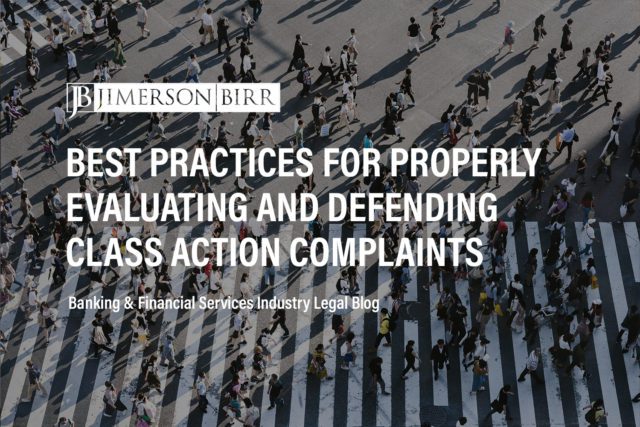What does removing a case to federal court using CAFA entail?
Utilizing the Class Action Fairness Act of 2005 (CAFA) to remove state court class actions to federal court entails taking advantage of the expanded federal jurisdiction provided by CAFA. This federal law eases the requirements for federal jurisdiction in class action cases, allowing defendants to move cases from state to federal courts. In Florida, as in other states, class action defense attorneys can use CAFA as a strategic tool to potentially benefit from federal court procedures and resources.
Need help removing a case to federal court? Schedule your consultation today with a top class action defense attorney.
Which laws and regulations apply to removing a case to federal court?
In Florida, several laws and regulations apply to utilizing CAFA to remove state court class actions to federal court:
- Title 28 U.S. Code § 1332(d): This federal statute sets forth the requirements for diversity jurisdiction under CAFA, including the amount in controversy and minimal diversity requirements.
- Title 28 U.S. Code § 1453: This federal statute provides the procedure for removing class actions under CAFA, which includes special provisions for removing “mass actions” as defined under the statute.
- Florida Rules of Civil Procedure Rule 1.220: This state procedural rule governs class actions in Florida state courts and provides the framework for determining whether a case can be certified as a class action.
- Eleventh Circuit Court of Appeals decisions: As the federal appellate court covering Florida, the Eleventh Circuit Court of Appeals has issued several rulings interpreting CAFA and its applicability to class action cases arising in Florida.
By understanding these laws and regulations, class action defense attorneys in Florida can effectively navigate the process of utilizing CAFA to remove state court class actions to federal court.
What are the strategic benefits of removing a case to federal court using CAFA in class action defense litigation?
Utilizing the Class Action Fairness Act of 2005 (CAFA) to remove state court class actions to federal court in class action litigation defense matters offers the following strategic benefits:
- Access to federal courts and judges: Federal courts often have more experience and expertise in handling complex class action cases, which can lead to more predictable outcomes for defendants. Additionally, federal judges may be less likely to certify class actions than state judges, giving defendants a strategic advantage.
- Uniform procedural rules: Federal courts follow the Federal Rules of Civil Procedure, which apply to all federal courts nationwide. This uniformity can simplify the litigation process and reduce the risk of inconsistent rulings from varying state procedural rules.
- Efficient case management: Federal courts often have more resources to manage significant, complex class action cases efficiently, leading to a quicker resolution of the issue, which can save time and money for defendants.
- Multistate litigation: CAFA jurisdiction allows for consolidating related class actions filed in multiple states, streamlining the litigation process for defendants facing multistate claims.
- Potential for favorable precedent: Successfully removing a case to federal court under CAFA may create a favorable precedent for future class action defense litigation, making it more challenging for plaintiffs to bring similar class actions in state courts.
- Mitigating forum shopping: By removing cases to federal court, defendants can counteract plaintiffs’ attempts to file class actions in state courts that are perceived to be more plaintiff-friendly or have a history of significant jury awards.
In summary, utilizing the Class Action Fairness Act of 2005 to remove state court class actions to federal court provides defendants with several strategic benefits, including access to federal courts and judges, uniform procedural rules, efficient case management, the potential for favorable precedent, and mitigating forum shopping by plaintiffs.
What steps should a class action defendant take to remove a case to federal court using CAFA, and how will class action plaintiffs generally respond?
Class action defendants should follow these steps:
- Evaluate CAFA applicability: Determine if the case meets the CAFA requirements, including minimal diversity, numerosity, and the amount in controversy. Consult with experienced class action defense counsel to assess the case’s eligibility for removal under CAFA.
- Timely removal: File a Notice of Removal within 30 days of receiving the initial complaint or receiving a document that reveals the case is removable under CAFA.
- Prepare a detailed Notice of Removal: Draft a Notice of Removal that clearly explains the basis for removal under CAFA, including factual and legal support for minimal diversity, numerosity, and the amount in controversy.
- Monitor state court proceedings: Monitor the state court proceedings to ensure compliance with procedural requirements and to identify any changes that may impact CAFA jurisdiction.
Class action plaintiffs may respond by:
- Filing a motion to remand the case back to state court, arguing that CAFA requirements are unmet or that an exception to CAFA applies.
- Amending the complaint to avoid CAFA jurisdiction, such as reducing the number of class members or the amount in controversy.
- Challenging the timeliness or sufficiency of the Notice of Removal.
Legal defenses against CAFA removal may include:
- Lack of minimal diversity: Arguing that there is insufficient diversity between the parties to satisfy CAFA’s minimal diversity requirement.
- Amount in controversy: Contending that the amount in controversy does not meet or exceed the $5 million threshold required by CAFA.
- Home-state or local controversy exception: Asserting that an exception to CAFA jurisdiction applies, such as the home-state or local controversy exception.
- Untimely removal: Arguing that the defendant did not file the Notice of Removal within the window required by law.
When a set of facts is appropriate to meet the requirements of CAFA removal, there are many paths a claimant may take. We are value-based attorneys at Jimerson Birr, which means we look at each action with our clients from the point of view of costs and benefits while reducing liability. Then, based on our client’s objectives, we chart a path to seek appropriate remedies.
To determine whether a unique situation may necessitate litigation, please contact our office to set up your initial consultation.
Frequently Asked Questions
- What is the “minimal diversity” requirement under CAFA?
Minimal diversity under CAFA requires that at least one class member has a different state citizenship from any defendant. This requirement is less stringent than the “complete diversity” standard, which requires all plaintiffs to have a different state citizenship from all defendants.
2. Can a class action plaintiff appeal a federal court’s decision to deny a motion to remand?
Answer: A class action plaintiff can appeal a federal court’s decision to deny a motion to remand. The plaintiff must file a petition for permission to appeal with the appropriate appellate court within 14 days of the district court’s order.
3. How do courts determine if the amount in controversy meets the $5 million threshold under CAFA?
Courts may consider the plaintiff’s good faith estimate of damages, the potential size of the class, and the possible recovery per class member. Defendants may also provide evidence to support their assertion that the amount in controversy exceeds $5 million, such as expert reports or affidavits.
Have more questions about a CAFA removal-related situation?
Crucially, this overview of removal to federal court using CAFA does not begin to cover all the laws implicated by this issue or the factors that may compel the application of such laws. Every case is unique, and the laws can produce different outcomes depending on the individual circumstances.
Jimerson Birr attorneys guide our clients to help make informed decisions while ensuring their rights are respected and protected. Our lawyers are highly trained and experienced in the nuances of the law, so they can accurately interpret statutes and case law and holistically prepare individuals or companies for their legal endeavors. Through this intense personal investment and advocacy, our lawyers will help resolve the issue’s complicated legal problems efficiently and effectively.
Having a Jimerson Birr attorney on your side means securing a team of seasoned, multi-dimensional, cross-functional legal professionals. Whether it is a transaction, an operational issue, a regulatory challenge, or a contested legal predicament that may require court intervention, we remain a tireless advocate every step of the way. Being a value-added law firm means putting the client at the forefront of everything we do. We use our experience to help our clients navigate even the most complex problems and come out the other side triumphant.
If you want to understand your case, the merits of your claim or defense, potential monetary awards, or the amount of exposure you face, you should speak with a qualified Jimerson Birr lawyer. Our experienced team of attorneys is here to help. Call Jimerson Birr at (904) 389-0050 or use the contact form to schedule a consultation.

We live by our 7 Superior Service Commitments
- Conferring Client-Defined Value
- Efficient and Cost-Effective
- Accessibility
- Delivering an Experience While Delivering Results
- Meaningful and Enduring Partnership
- Exceptional Communication Based Upon Listening
- Accountability to Goals










